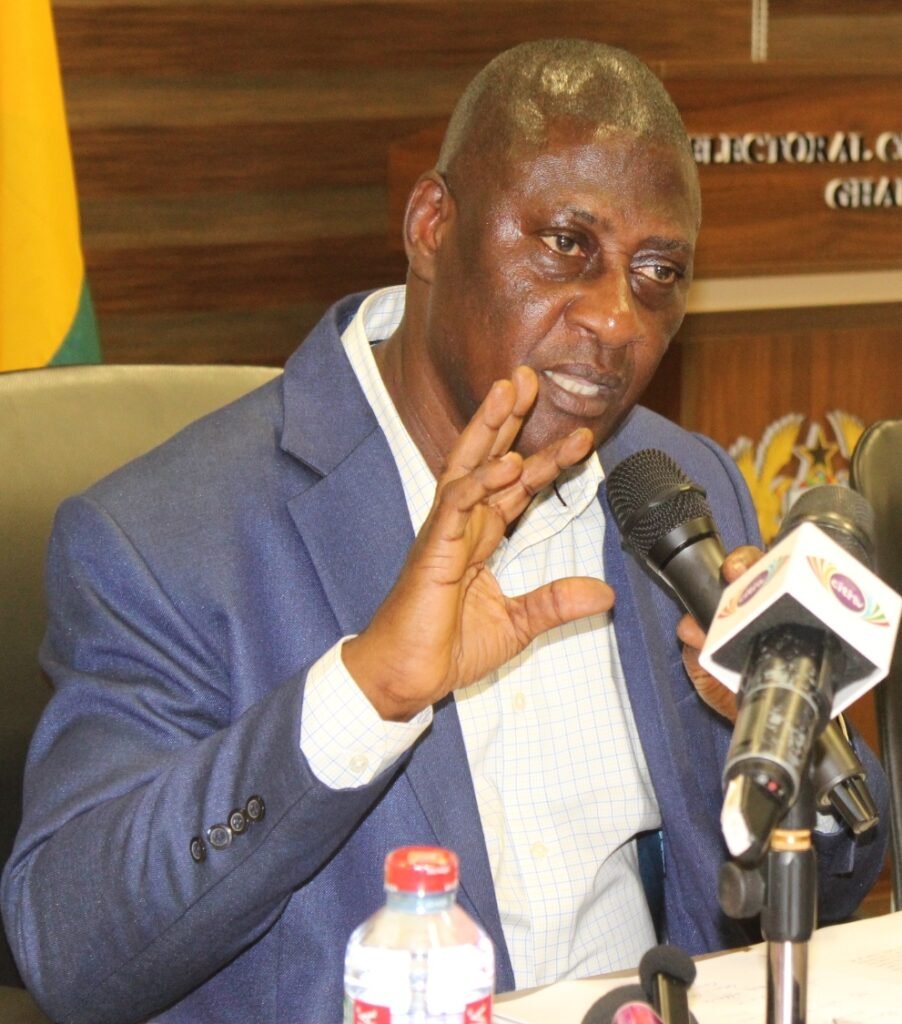The Electoral Commission (EC) has assured the public that the 2024 general election will be held on December 7, 2024 starting from 7a.m. to 5p.m. as scheduled.
A statement issued in Accra on Saturday, signed by the Deputy Chairman, Operations, Samuel Tettey, has therefore urged the public to disregard the disinformation circulated by some media houses that the elections would be held on two separate days.

Mr Samuel Tettey, Deputy Chairman, Operations,
This follows the circulation of a video on social media in which Oheneba Nana Asiedu, a presenter of a Kumasi-based radio and television, Wontumi TV, is making claims that the elections would be held on two separate days.
The Commission described this as “misleading” and
called on the public to disregard such misleading statements regarding the December 7 elections.
It emphasized that “Voters are reminded that voting is on the 7th of December 2024, and starts from 7a.m. until 5p.m. Therefore, voters are urged to turn out in their numbers on December 7 and cast their votes in an orderly manner.”
According to the police, the suspect, Oheneba Nana Asiedu has been arrested and charged with offences, including publication of false news but been granted bail to assist with investigations.
According to the police the video, recorded in the studios of Wontumi FM in Kumasi, showed the presenter encouraging voters to cast their ballots for presidential candidates on separate days, a statement described by authorities as “false and likely to disturb public peace.”
The suspect in the video claimed that the December 7 presidential election would be for candidates from number one to seven on the ballot paper, while those from number eight would be cast on different dates after December 7.
The presenter falsely claimed that there would be different voting dates for some presidential candidates in the December 7 General Election, a statement that could potentially confuse voters and disrupt the electoral process.
A police statement confirmed that the case would be presented before the court for legal proceedings.
The Ghana Police Service has cautioned the general public, particularly media practitioners, about the serious implications of spreading unverified or false information.
The statement highlighted the potential dangers of such misinformation during a politically-sensitive period, stressing the critical role of accurate and responsible communication in maintaining public peace.
Ghana’s Criminal Offences Act, 1960 (Act 29), Section 208, states that: “A person who publishes or reproduces any false news or report, with intent to cause fear and alarm to the public, or to disturb the public peace, commits a misdemeanour. False news means any news or report which is wholly or partly false, and which is published or reproduced without lawful excuse or justification.”
The implications and penalties of publishing false news under Section 208 can lead to misdemeanour charge, fines or imprisonment (up to 3 years).
BY RAYMOND APPIAH-AMPONSAH


